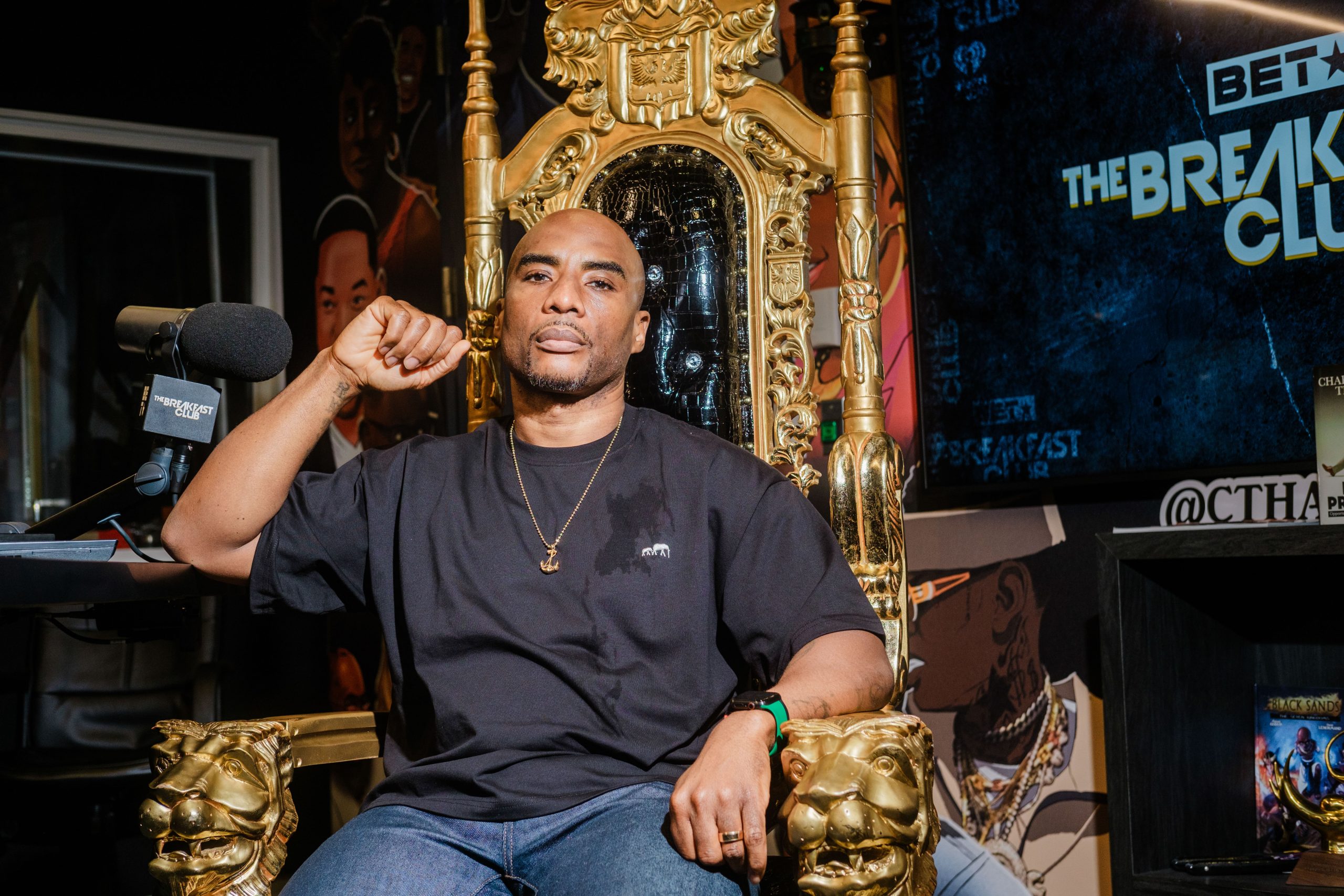Charlamagne tha God Criticizes CNN’s Coverage of Trump and Double Standards in Media
In a recent appearance on CNN’s AC360, Charlamagne tha God, known for his blunt and straightforward commentary, criticized the network’s coverage of former President Donald Trump and the apparent double standards applied to political figures like Vice President Kamala Harris. Speaking to CNN anchor Anderson Cooper, Charlamagne passionately argued that mainstream media has not been honest in its portrayal of Trump since 2016, overlooking the dangerous and often authoritarian rhetoric promoted by the former president. The interview quickly sparked conversation on social media and highlighted the complex landscape of media coverage, accountability, and the rising concerns over fascist ideologies in politics.

The Critique on Trump’s Coverage in Mainstream Media
During the segment, Charlamagne expressed frustration at what he sees as a failure to critically address Trump’s far-right rhetoric, which includes talk of terminating parts of the U.S. Constitution, jailing political opponents, and referencing potential camps for certain groups. He argued that these comments and intentions indicate a dangerous shift in political discourse, yet they are not treated with the seriousness they deserve.
In a viral moment from the interview, Charlamagne pointed out, “I don’t know why we’re even thinking about electing somebody who’s talking about putting people in camps… [and] wants to terminate the constitution.” His comments struck a chord with viewers, as they highlighted the concerning normalization of extreme language in American politics, especially in the context of a potential 2024 Trump campaign.
Comparing Treatment of Trump and Kamala Harris
Charlamagne also called attention to the media’s tendency to apply harsher scrutiny to Kamala Harris, arguing that coverage frequently fixates on questions of her racial identity or criticisms of her leadership style, while Trump’s controversial statements receive comparatively muted criticism. “I feel like I heard more on this network about ‘is Kamala Harris Black?’ than I do about Donald Trump being a fascist,” he told Cooper.
This perceived imbalance in treatment raises questions about media biases and the role they play in shaping public opinion. Charlamagne’s critique reflects growing frustration among many viewers who feel the media is softening the blow on extreme rhetoric from certain political figures, while holding others to different standards.
Anderson Cooper’s Response to Charlamagne’s Critique
In response, Cooper defended CNN’s editorial practices, asserting that the network frequently addresses Trump’s controversial rhetoric and the dangers it poses. “That’s bullshit, Anderson,” Charlamagne responded, arguing that discussions around Trump’s divisive language and ideology are not as prominent as they should be given the gravity of the statements.
This exchange underscores a broader dilemma facing the media: how to balance the objective reporting of events with the responsibility to warn viewers of potential threats to democratic principles. Cooper later attempted to steer the conversation towards Trump’s upcoming appearance on The Joe Rogan Experience and the implications it could have for the election, but Charlamagne maintained his focus on the lack of honest conversations around Trump’s authoritarian leanings.
The Role of the Media in Holding Leaders Accountable
Charlamagne’s statements reflect a wider belief that the media should play a central role in holding political figures accountable for their actions and words. In his view, news networks are uniquely positioned to challenge dangerous ideologies and ensure that they are not normalized. His critique calls for a shift in how the media covers figures like Trump, particularly in terms of giving due weight to comments that may have long-term implications for democracy.
For instance, Trump’s calls for constitutional amendments and talk of targeting specific groups raise red flags among those concerned about the preservation of civil liberties. Charlamagne’s remarks suggest that the media should prioritize these issues as a matter of public safety and national interest.
Growing Concern Over Trump’s Authoritarian Ideals
This interview also highlighted the ongoing concern over the authoritarian direction Trump’s rhetoric appears to take. Many political analysts have observed that Trump’s language has become more extreme since leaving office, and some worry that these statements could have real-world consequences if they continue to go unchallenged.
Charlamagne’s criticism is rooted in a fear that without proper media scrutiny, Trump’s authoritarian ideals could gain traction among voters who may not fully understand the implications of his statements. His critique echoes concerns from other public figures who worry that democracy itself is at risk if extreme rhetoric continues to be tolerated in mainstream discourse.
Public Response and Implications for Future Coverage
The public reaction to Charlamagne’s comments has been polarized, with many praising his willingness to speak bluntly about Trump’s rhetoric and the media’s response to it. Others, however, have criticized his approach, arguing that media outlets already do their part in exposing Trump’s controversial views.
Regardless, Charlamagne’s appearance on CNN has reignited the conversation about the role of media in shaping political narratives. His statements have prompted viewers to reconsider how information is presented and whether the media is doing enough to protect democratic principles from harmful ideologies.
The Path Forward: Addressing Media Double Standards
The conversation around media double standards is likely to continue as the 2024 election cycle intensifies. Charlamagne’s critique may encourage networks to take a closer look at their editorial practices and consider how they can balance objectivity with the responsibility to hold powerful figures accountable. For many, his words serve as a call to action for a more forthright and honest approach to covering the leaders who shape the nation’s future.
As Charlamagne pointed out, “No network has been honest about Donald Trump since 2016.” His critique sheds light on the need for more transparent discussions around the impact of Trump’s rhetoric on American democracy and serves as a reminder of the critical role media plays in safeguarding democratic values.




